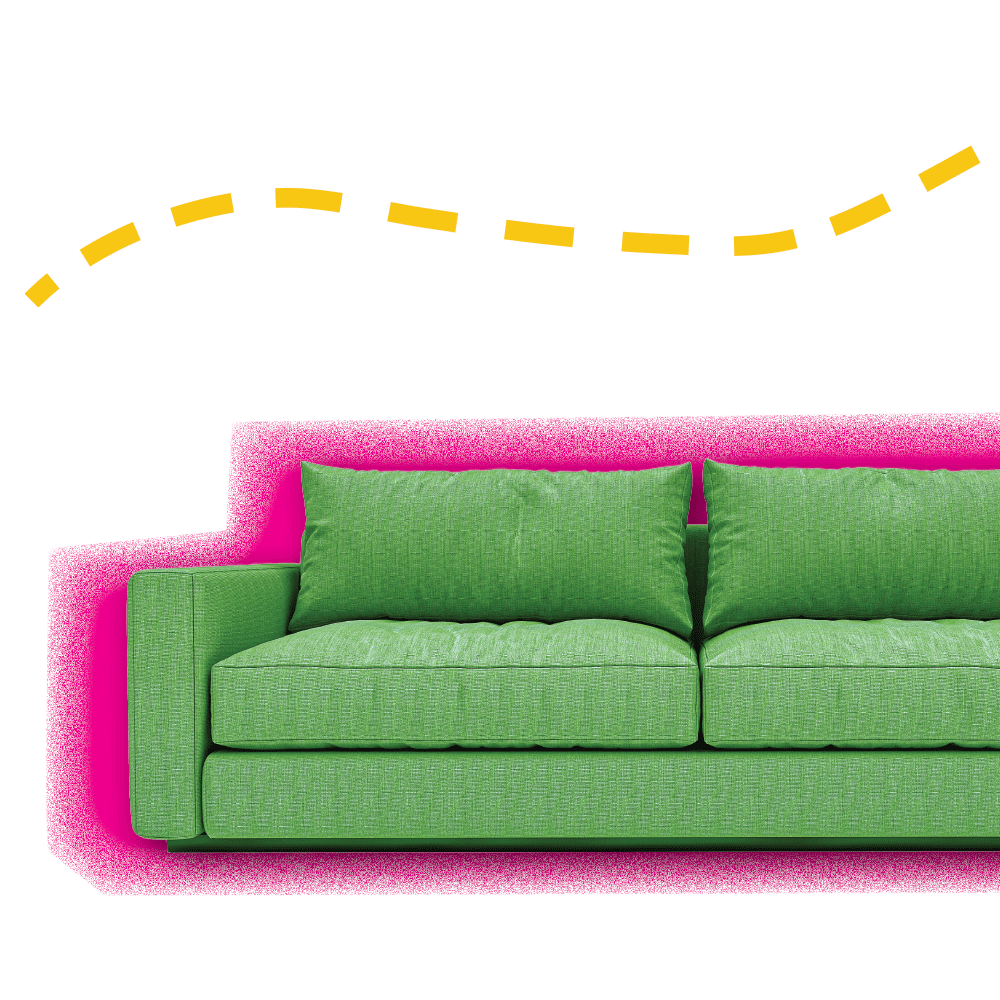
5 Biblical Tools to Tackle Depression & Anxiety
If you are struggling with depression and anxiety, know that your emotions are not sinful.Biblical authors regularly refer to depression and anxiety. Sometimes translated as “worry” or “care,” the Hebrew word, dĕ ’ āgâ,and the Greek word, merimma,are used together nearly two dozen times. So, in what context do we see these words? Is it a sin to be depressed or anxious?
Emotions are not sinful. Anxiety is an emotion; chemical makeup is not sinful. Depression is often related to chemicals in the body. As with nearly all things, however, our reaction and response can be sinful. Let’s first look at what the Bible says about experiencing depression and anxiety.
Depression
Depression is a deep sense of sadness and discouragement, also sometimes referred to as despair. External circumstances can cause depression at times. Paul writes to the believers in Corinth, explaining that he and some fellow workers “were crushed and overwhelmed beyond [their] ability to endure, and [they] thought [they] would never live through it” (2 Corinthians 1:8b).
Sometimes pure exhaustion can lead to depression, as we see in Genesis 21 when Hagar is sent away with her son Ishmael. We read in verses 14-16 that she “wandered aimlessly in the wilderness of Beersheba” and was so exhausted that “she burst into tears.” Along with exhaustion, illness can cause depression, as was the case for Hezekiah. We read about his deadly illness and depression in Isaiah 38: “Hezekiah became deathly ill … Then he broke down and wept bitterly” (vv. 1-3).
Anxiety
Anxiety is more in line with worry and fear than despair. It’s a state of deep concern, uncertainty, and agitation. We see many instances of anxiety in Scripture. For example, we read about Martha’s worry and preoccupation with preparations for Jesus. Jesus tells her, “Martha…you are worried and upset about many things,” but tells her that she should focus on listening to His teachings (Luke 10:38-42, NIV).
David—shepherd boy, victor over Goliath, and king—is one of the most prolific writers about his own emotions of anxiety. He cries out that “anxiety was great” within him (Psalm 94:19, NIV). He asked God to “know [his] anxious thoughts” (Psalm 139:23). David didn’t just suffer from anxiety; he also suffered from periods of depression. He asked over and over again, “Why, my soul, are you downcast? Why so disturbed within me?” (Psalm 42, NIV).
Circumstances or Sin?
These types of circumstances are beyond our control. However, our own sin can bring on depression and anxiety as well. Judas was so depressed about betraying Jesus that he hanged himself (Matthew 27:3-5). God told the prophet Ezekiel that the Israelites would be anxious “because of their sin” (Ezekiel 4:16-17, NIV). He also informed Jeremiah that His people would despair in a severe drought that was due to their sinful actions (Jeremiah 14:1-7). Our sin can result in depression and anxiety, but experiencing those feelings are not sinful.
David, Hezekiah, Martha, Paul—and other biblical heroes of the faith—struggled with anxiety and depression. Do they have any hope to give those of us who struggle (or live with someone who is struggling) today? What can we do so we don’t fall into sin? This is where the good news comes in!
Good News!
Jesus—the Good News in the flesh—addressed anxiety half a dozen times just in His Sermon on the Mount, as He gave the repeated command to not worry (Matthew 6:25-33). Paul tells the Christians in the church at Philippi, “Do not be anxious about anything” (Philippians 4:6a, NIV).
“Sure, that’s all well and good, but how do I stop being anxious? How do I get rid of depression?,” you might ask. God gives us answers for that in His Word, too. When Jesus says do not worry, He couples the command with the reminder to trust your heavenly Father (Matthew 6:25-33). Paul doesn’t end with an easy peasy “don’t be anxious” comment; he goes on to say, “but in everything, by prayer and petition, with thanksgiving, present your requests to God” (Philippians 4:6b, NIV). Even in his deep, depressed crying out, David reminds his own soul: “I will put my hope in God” (Psalm 42:11).
Trust? Hope? Give thanks? How do we even begin to do that when we are anxious or depressed? The Bible gives us helpful tools for that; we just need to graph it out. Let’s look at the acronym G.R.A.P.H.
G – Gaze
When we are anxious or depressed, we need a renewed vision or perspective. We need to take our eyes off of our immediate circumstances and ourselves, and focus on God as the center of everything. Gaze at Jesus. He reminds us to “seek the Kingdom of God above all else, and live righteously, and He will give you everything you need” (Matthew 6:33).
R – Remember
In moments of worry and despair, we should do our best to bring to mind what God has already done for us. Sometimes we may find it easier to remember how He has provided in other ways—like food for the birds and flowers to clothe the fields—so that we can remember how much more valuable we are to Him (Matthew 6:25-30). A good way to remember what He has done is by going through Philippians 4:8 and making a list of things that are noble, right, pure, lovely, admirable, excellent, and praiseworthy.
A – Acclaim
This is another word for praise. After we remember what He has done for us and how He has provided for His creation, our natural response should be that of praise. It may be hard to bring to mind words of acclamation while experiencing anxiety or depression. In those moments, read Scripture aloud to God. Try reading Isaiah 26 or Psalm 98, 145, or 150. “Sing a new song to the Lord, for He has done wonderful deeds” (Psalm 98:1a).
P – Pray
Our praise to God is prayer, but we can also ask Him for His help, protection, and release from anxiety and depression. David reminds us, “Give your burdens to the Lord, and He will take care of you” (Psalm 55:22a). Peter says something similar: “Give all your worries and cares to God, for He cares about you” (1 Peter 5:7). After reminding us to pray and take our requests to God, Paul tells us, “Then [we] will experience God’s peace, which exceeds anything we can understand. His peace will guard [our] hearts and minds in Christ Jesus” (Philippians 4:7).
H – Hope
Now that we have returned our gaze to Christ, remembered what God has already done for us, acclaimed and praised Him for those things and for Who He is, and prayed, we are at a place where we can hope.
The author of Hebrews reminds us that we “have this hope as an anchor for the soul, firm and secure” (Hebrews 6:19, NIV). Hope and trust go hand-in-hand. Through the prophet Jeremiah, the Lord reminds His people to trust in the Lord. Those who trust in the Lord are those “who have made the Lord their hope and confidence” (Jeremiah 17:7-8). David reminds us that we can trust He will do what He says when we are committed to Him (Psalm 37:5-6). And the prophet Habakkuk reminds us that, no matter what the outcome, our hope is secure in who God is. Even if He doesn’t answer the way we desire—if our hope is truly in Him, we can still say, “yet I will rejoice in the Lord! I will be joyful in the God of my salvation!” (Habakkuk 3:18).
There are definitely times when those experiencing anxiety or depression should seek medical help. Taking medicine to help with these things is not sinful. Regardless of one’s need for medical treatment, we are all advised to GRAPH it out: Gaze, Remember, Acclaim, Pray, and Hope. He will come through!
References:
Brand, Chad et. al., eds. “Holman Illustrated Bible Dictionary.” (Nashville, TN: Holman Bible Publishers, 2003).
Enlow, Ralph E., Jr. “Anxiety.” Evangelical Dictionary of Biblical Theology. Baker Reference Library. (Grand Rapids, MI: Baker Books House, 1996).
Manser, Martin H. “Dictionary of Bible Themes: The Accessible and Comprehensive Tool for Topical Studies.” (London, England: Martin Manser, 2009).
Swanson, James and Orville Nave. “New Nave’s Topical Bible.” (Oak Harbor, WA: Logos Research Systems, 1994).



